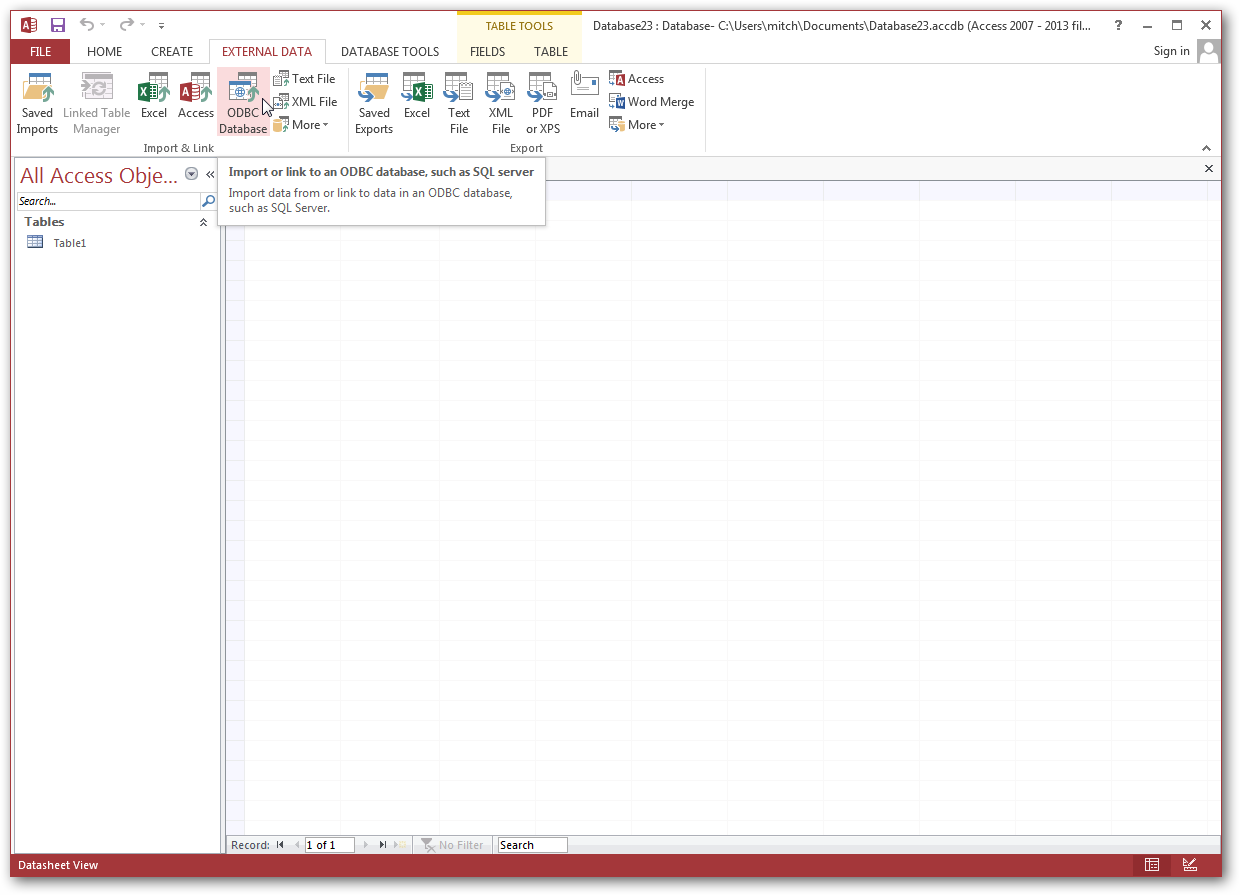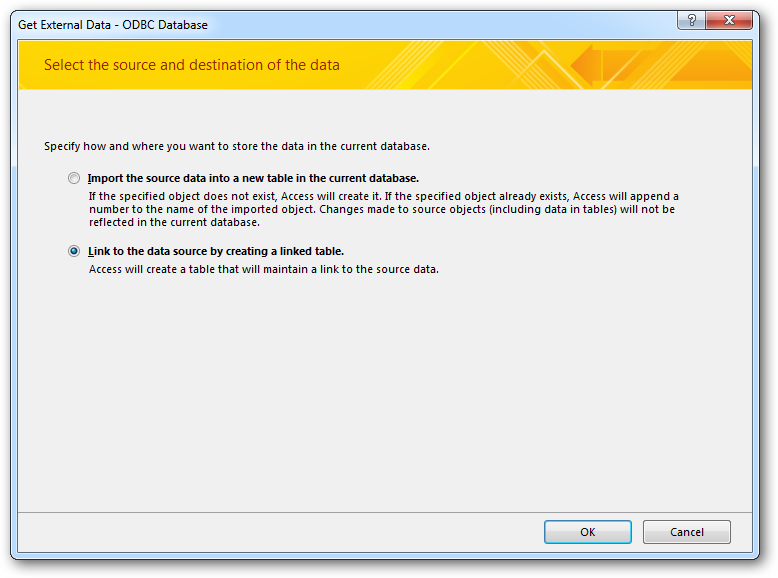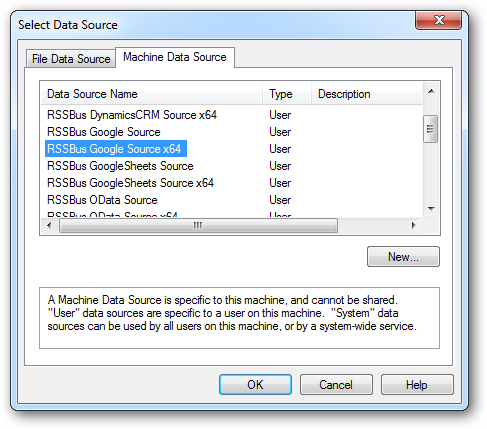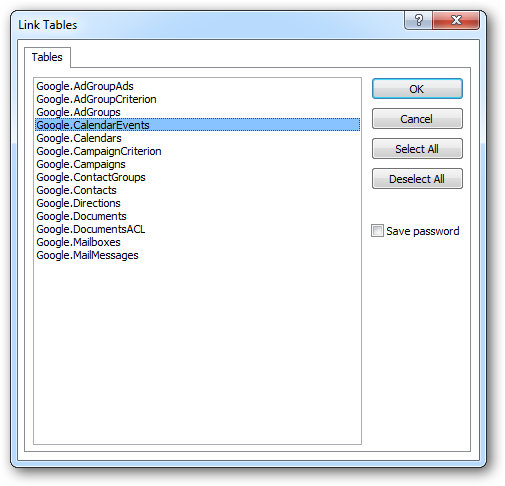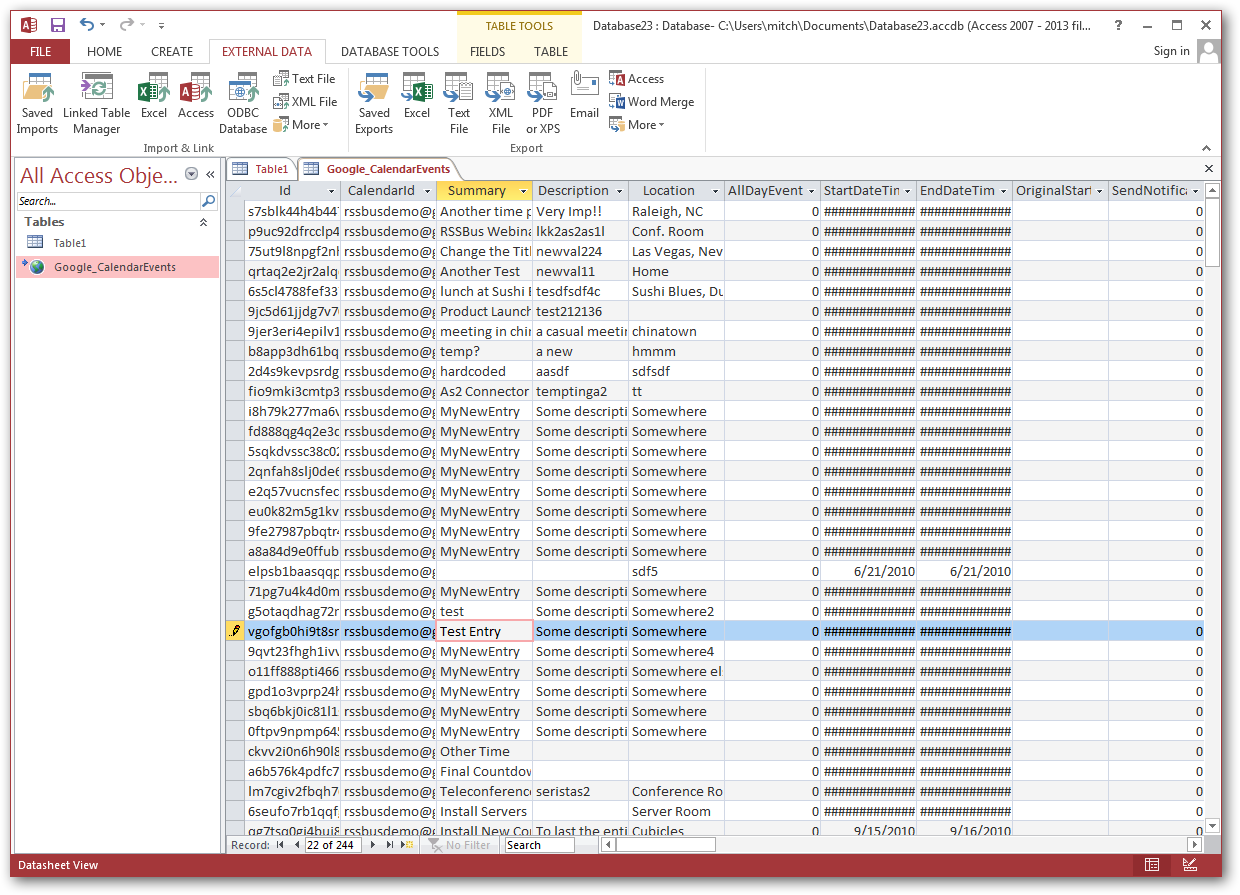Discover how a bimodal integration strategy can address the major data management challenges facing your organization today.
Get the Report →How to Use a Microsoft Access Database to Update Azure Table Data in Real Time
Update Azure Table data by creating a linked table in Microsoft Access with the CData Azure Table ODBC Driver.
CData ODBC drivers connect your data to any database management tool that supports Open Database Connectivity (ODBC). This includes many of the most popular productivity tools, adding new capabilities for document sharing and collaboration. Using the CData ODBC driver for Azure Table, you can update live Azure Table data in Microsoft Access; for example, you can make updates that can be immediately seen by other users.
Connect to Azure Table as an ODBC Data Source
If you have not already, first specify connection properties in an ODBC DSN (data source name). This is the last step of the driver installation. You can use the Microsoft ODBC Data Source Administrator to create and configure ODBC DSNs.
Specify your AccessKey and your Account to connect. Set the Account property to the Storage Account Name and set AccessKey to one of the Access Keys. Either the Primary or Secondary Access Keys can be used. To obtain these values, navigate to the Storage Accounts blade in the Azure portal. You can obtain the access key by selecting your account and clicking Access Keys in the Settings section.
Create a Linked Table to NorthwindProducts Data
Follow the steps below to create a linked table, which enables you to access live NorthwindProducts data.
- On the External Data tab in Access, click ODBC Database.
![Use the Get External Data wizard to work with ODBC data sources in Access.]()
- Select the option to link to the data source. A linked table will enable you to read from and write data to the NorthwindProducts table.
![Linked Tables enable you use the live connection to Azure Table that is provided by the driver.]()
Select the CData Azure Table data source from the Machine Data Source tab.
![DSNs listed in the Get External Data wizard.]()
-
Select the NorthwindProducts table. For more information on this table, see the "Data Model" chapter in the help documentation.
![Available tables. (Google is shown.)]()
-
Double-click the linked table to make edits. The linked table will always have up-to-date data and any changes will be reflected back to the underlying table.
![A linked table to the live data. (Google is shown.)]()






